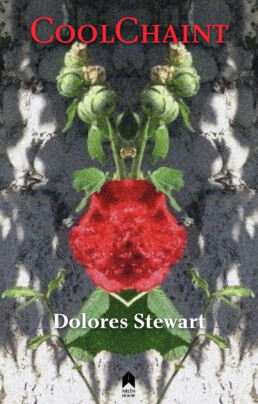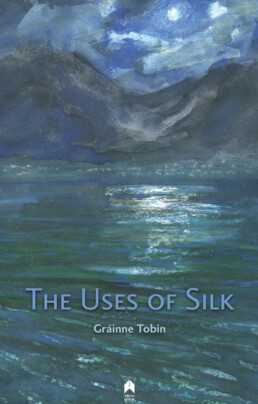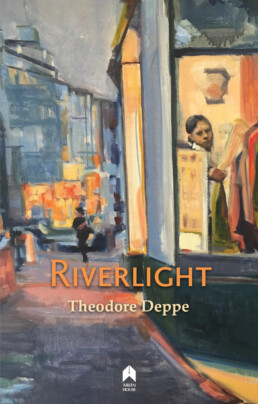Feather and Bone
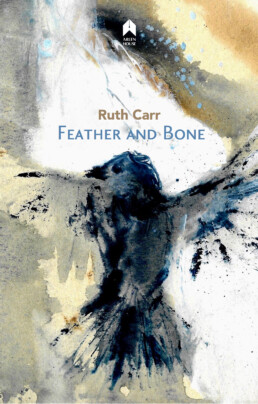
Ruth Carr
Feather and Bone
ISBN:
9781851321858
9781851321865 limited edition
Ruth Carr’s poems explore the lives of two women who lived contemporaneously but never met – Dorothy Wordsworth and Mary Ann McCracken. The poems reflect how they lived their lives alongside their more famous brothers, with Mary Ann’s political strength carrying her through tragedy and Dorothy’s calmer “foxglove feeling” for life.
‘Try to unhinge who you are’, Ruth Carr says, and we are gently unhinged from our own time by the poems in this book, from a poet who can conjure the political resolution of Mary Ann McCracken as well as the ‘foxglove feel for things’ of Dorothy Wordsworth. Reading Ruth Carr we encounter a poet whose integrity, her steady eye, have made her equal to the challenge of real lives, in a real past, as a theme of poetry. – Eiléan Ní Chuilleanáin, Professor (emeritus) School of English, Trinity College Dublin
‘How sensitively you respond to Dorothy’s writing. You have spare, tight use of language and offer the reader some lovely things. Altogether a warm and compassionate picture emerges’ – Pamela Woof, President of the Wordsworth Trust
Laoithe Cumainn Agus Danta Eile
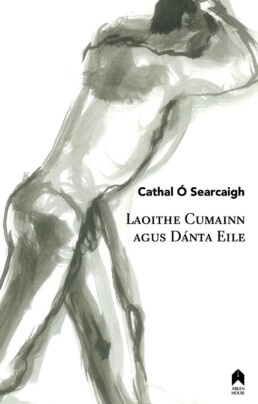
Cathal Ó Searcaigh
Laoithe Cumainn Agus Danta Eile
ISBN: 9781851322602
‘Cathal Ó Searcaigh – one of the finest poets in Ireland, and one of the very best in the Irish language in this century and the last – has been writing and honing and perfecting his craft for nearly half a century. And ‘craft’ does indeed have to be emphasised in every cranny of his work. Even to look at a page in one of his many books without reference to context or meaning we immediately see a shape and an art and a form. A reading of the poems will see how the language and the contours have been welded together to make an artistic whole’
– Alan Titley, Dublin Review of Books, 2020
Ó Searcaigh’s unique sensitivities and language mark him as one of the most important voices in Irish poetry in the last century. For me, his ongoing affair with his native Donegal landscape is unsurpassed in its subtle understandings of people and place
– Cathal Póirtéir, Books Ireland, 2019
Cool Chaint
Praise for Dolores Stewart’s poetry
“Is file déanta í Stewart agus máistreacht aice ar an uaim, ar na hiomhánna agus ar an rithim.”
– Philip Cummings, Lá
“Saothar a tharraingíonn as foinsí na fealsúnachta, na staire agus an dúlra a fhaighimid i ndéantúis Stewart agus tá a saothar ar maos i dtírdhreach iarthar na hÉireann. Ar na leabhair a tháinig óna peann tá ’Sé Sin le Rá agus An Cosán Dearg.”
– Imram
“Dolores Stewart imagines, thinks and writes in the two tongues of Ireland. In both modes of language … each with its own independent demesne of line and locution … Stewart invests the hallmarks of the European imagination with personal and contemporary pertinence.”
– James Silas Rogers, New Hibernia Review
“Dolores Stewart … more widely published in Irish than in English … Presence of Mind exhibits a sensibility profoundly shaped by the Western canon. Her wider European culture is as fully assimilated as the detailed idiom of local speech. Beautifully exact, these poems wear their undoubted intelligence lightly … a book of real substance, which deserves to be widely read.”
– Fiona Sampson, The Irish Times
“Poems which are both subtle and affecting, and containing cleverly balanced lyrics that are ingeniously framed with a number of jaw dropping moments where complexity and simplicity co-exist brilliantly.”
– Kathryn Gray, Agenda
“Dolores Stewart’s combined use of intellect and evocative word-choice is a pure illustration of the ability to display a passion for noticing the small details of life and for telling stories through beautiful language.”
– Nuala Ní Chonchúir, Divas! A Sense of Place
“Stewart also manages a feat beyond all but very few writers: In Out of the Rain contains a number of poems in Irish, not noticeably less competent than those in English … a mature debut deserving close attention.”
– David Wheatley, Sunday Tribune
In Response To Rilke
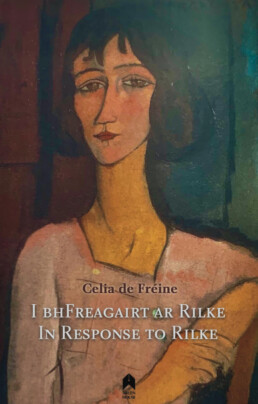
Celia de Fréine
I bhFreagairt ar Rilke / In Response To Rilke
ISBN: 9781851322411
Cé gur fearr aithne ar Rainer Maria Rilke i ngeall ar a shaothar Gearmáinise, scríobh sé os cionn ceithre chéad dán i bhFraincis freisin. Le linn do Celia de Fréine seal a chaitheamh sa Centre Culturel Irlandais i bPáras chuir sí aithne ar an saothar seo agus ar an bhfear féin. Bhíodh cónaí air gar don áit ina raibh sí lonnaithe agus cuairt tugtha aige ar roinnt mhaith áiteacha roimpi amach. Tá an leabhar seo scríofa i bhfreagairt ar an láithreacht sin agus ar a shaothar Fraincise, go háirithe an leabhar, Migration des Forces.
Although Rainer Maria Rilke is better known for his work in German, he also wrote more than four hundred poems in French. During a residency at the Centre Culturel Irlandais in Paris, Celia de Fréine became familiar with this work and with the man himself. He had lived near where she was based and had visited before her many of the places she frequented. This book is written in response to that presence and to his French oeuvre, in particular the book, Migration des Forces.
Treaspásóir / Trespasser
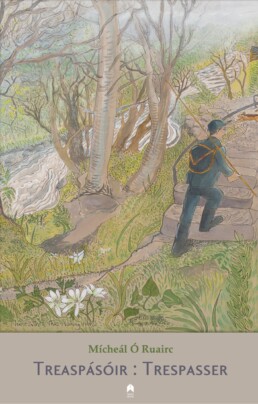
Mícheál Ó Ruairc
Treaspásóir / Trespassor
ISBN:
9781851322206
9781851322305 limited edition
In this collection, Treaspásóir : Trespasser, Mícheál Ó Ruairc’s sixth, he scrutinises and filters his own life in great depth. Life and poetry are inextricably linked. If poetry has a function, it must address the human condition in the cosmos. It must give pleasure and open its heart to the reader. Ó Ruairc functions as an outsider and he ploughs his own furrow. The poet experiences an epiphany ‘at the boundary fence of a hop garden/down in Kent’; he listens ‘to the trance music/of Justine Suissa/at night’; he feels ‘like Oisín must have felt when/Niamh of the Golden Hair first laid eyes on him’ in the Pilgrim & George Inn in Glastonbury; he laments his father while ‘raging drunk, stumbled from room/to room in danger of splitting/my head’; he imagines ‘a posse of poets waiting patiently/on the deserted beach’ for poetic inspiration to be washed up amongst the wreckage ‘on the edge of high water’ … This fine collection is a treasure trove of poetic gemstones.
Sa chnuasach seo, an séú ceann ón bhfile, déanann sé a shaol féin a iniúchadh agus a scagadh. Tá an saol agus an fhilíocht fite fuaite ina chéile. Má tá feidhm ar bith leis an bhfilíocht, caithfidh sí freastal ar staid an duine sa chosmas. Caithfidh sí pléisiúr a thabhairt agus a croí a nochtadh don léitheoir. Feidhmíonn Ó Ruairc mar aonarán agus é ag treabhadh a iomaire féin. Bíonn eipeafáine ag an bhfile ‘ag claí teorann ghairdín leannlusanna/ i gceartlár Kent Shasana’; éisteann sé ‘le ceol trance/de chuid Justine Suissa/istoíche’; mothaíonn sé ‘mar a mhothaigh/ Oisín tráth ar leag Niamh Chinn Óir súil air’ agus é sa Pilgrim & George Inn i nGlastonbury; caoineann sé a athair agus é ‘ar deargmheisce ag tuisliú ó sheomra/go seomra i mbaol mo threascartha’; samhlaíonn sé go mbíonn ar na filí Gaeilge a bheith ‘ag fanacht go foigneach/ar an trá fholamh chun seilbh/a ghlacadh ar na hiontaisí’ a thagann isteach ar an taoide … Órchiste de sheoda filíochta atá sa chnuasach breá seo.
Reading the Future: New Writing from Ireland
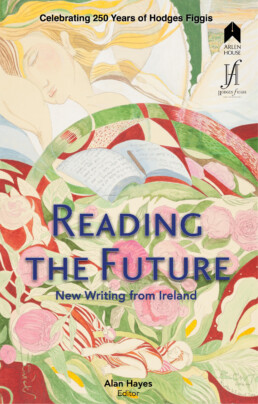
Alan Hayes (ed.)
Reading the Future: New Writing from Ireland
ISBN :9781851322015
Available from
Reading the Future: New Writing from Ireland celebrates 250 years of Hodges Figgis bookshop with new work from 250 of Ireland’s finest writers. The anthology encompasses poetry, short fiction, drama, novel extracts, crime, Irish language and children’s writing – giving us a showcase of the phenomenal talent which exists in Ireland today.
Hodges Figgis, one of the oldest bookshops in the world, traces its beginnings to 1768, when John Milliken opened a bookshop on Skinner’s Row. In 1844 Hodges Smith & Co. bought the business, and Samuel Figgis joined the firm, leading to the Hodges Figgis relationship being formed. Over the centuries the firm moved to Grafton Street and Nassau Street, and even opened up branches around the country. The shop took up residence in Dawson Street in 1945 where it thrives today as part of the Waterstones group. Hodges Figgis has been immortalised internationally in James Joyce’s Ulysses. This rich literary tradition continues with Reading the Future: New Writing from Ireland.
In The Space Between
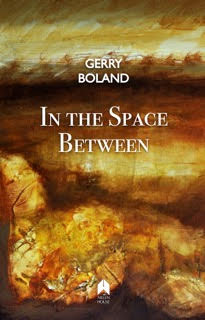
Gerry Boland
In The Space Between
ISBN: 9781851321339
Magician
like a magician he kept his cards up his sleeve
and like an illusionist he was unreadable
he lived in an exercise yard of the mind
bending occasionally to pick up a shard
of ancient pleasure, hold it up to the light
no one who knew him claimed to know him
beyond that smile he would let hang in the air
like a nineteenth-century levitator practicing his craft
before an awe-struck audience, only to deflate
their wonder in a neatly choreographed collapse
at such times
– his mischievous smile wrong-footing us –
we would be complete again
the rabbit back in the hat
once when we were abandoned for a year
the air that he left behind all but suffocated us –
his absence more poisonous than his presence
we breathed him in
spent poets walking towards the cliff face
we didn’t know it then but he was the black cards
in the deck, who shuffled our small lives
as we played fearlessly aboard the wreck
Love, The Magician
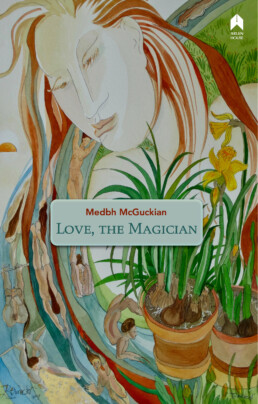
Medbh McGuckian
The human and the animal go hand in hand in Love, the Magician, as do the domestic and the infinite. We encounter them as unified things, part of a vision of life, the key to which is the passionate vocabulary Medbh McGuckian has created in the service of intuitively-known worlds. As before, her insights are exaltingly strange, but there is a new genius and a new mystique in her mastery of the unsayable. Gone almost completely now are the terra firma of selfhood and the conventional checkpoints of reason. In their place a profound imaginative structure has emerged, an uncanny wholeness, an uncanny dawning, in the light of which this extraordinary book grants to Irish literature a sensational poetic harvest
– Martin Dyar
The Uses of Silk
It’s the very virtues of Gráinne Tobin’s poetry – subtlety, cleverness, a succinct wisdom, exhilarating formal dexterity – which make the thematic risk-taking in her work, the analysis of uncomfortable circumstances, the slippages and losses of footing, the people and places left suddenly bereft, the discovery of wry and often raucous humour under the most desperate conditions, both manageable and fruitful. Hers is humane company, fearless but with a serious and intense capacity for empathy, as much with a reactionary protestor who ‘should wear a tunic of brownish wool,/rough-woven like sacking,/… held at the waist with a belt of deer sinews’, as with the silk-spinning golden orb spider ‘spooling draglines of finery,/stronger than the fiercest filament/dreamt of in modern war’s laboratories’. The dramatis personae are varied and unexpected; the emotional range expansive enough to run from elegy to slapstick; the diction charged, ingenious, delightful in incongruity and aptness. This collection is a considerable achievement, a resource of voices heard and consents given, indeed like ‘an inheritance of soup and matches,/perfumed soap still in its cellophane,/in case the day comes when we’ll need/to be provided for, or to provide.’
– Damian Smyth
Gráinne Tobin casts a steely sceptic eye over the Ireland of her childhood but her view is mediated by gentler memories of family tenderness surviving amid the fervour and craziness of 1950s religiosity. Here is a poet employing a nimble wit, seeing behind facades, moving in the slipstream of savage histories in and beyond Ireland. Her language is physical, energised, thoughtful, and enhanced by a guarded lyricism.
– Penelope Shuttle
Riverlight
In his seventh book of poems, Theodore Deppe’s masterful lyric narratives move back and forth from his home in Connemara to other parts of Ireland and the world. From an ophthalmologist’s waiting room in Galway where he ponders Finnegans Wake, to a room in northern California where he reads Dostoyevsky on the night of Donald Trump’s inauguration, to van Gogh’s reaction to Gauguin’s “Gospel of the Unreal” in France, these poems are meditative, humorous, and elegant, both deeply personal and in lively discussion with the larger world.

